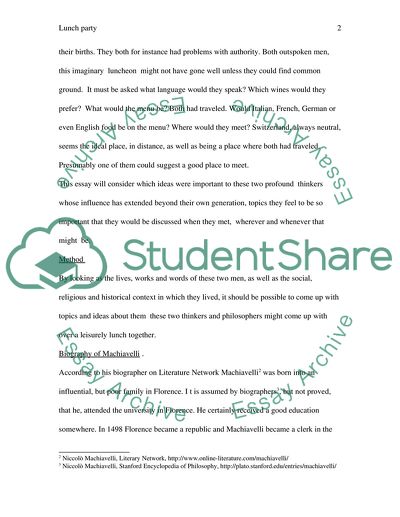Cite this document
(Machiavelli and Voltaire Meet for Lunch to Discuss War and Politics Assignment - 1, n.d.)
Machiavelli and Voltaire Meet for Lunch to Discuss War and Politics Assignment - 1. Retrieved from https://studentshare.org/history/1749984-what-if-machiavelli-and-voltaire-met-for-lunch-to-discuss-war-and-politics
Machiavelli and Voltaire Meet for Lunch to Discuss War and Politics Assignment - 1. Retrieved from https://studentshare.org/history/1749984-what-if-machiavelli-and-voltaire-met-for-lunch-to-discuss-war-and-politics
(Machiavelli and Voltaire Meet for Lunch to Discuss War and Politics Assignment - 1)
Machiavelli and Voltaire Meet for Lunch to Discuss War and Politics Assignment - 1. https://studentshare.org/history/1749984-what-if-machiavelli-and-voltaire-met-for-lunch-to-discuss-war-and-politics.
Machiavelli and Voltaire Meet for Lunch to Discuss War and Politics Assignment - 1. https://studentshare.org/history/1749984-what-if-machiavelli-and-voltaire-met-for-lunch-to-discuss-war-and-politics.
“Machiavelli and Voltaire Meet for Lunch to Discuss War and Politics Assignment - 1”, n.d. https://studentshare.org/history/1749984-what-if-machiavelli-and-voltaire-met-for-lunch-to-discuss-war-and-politics.


